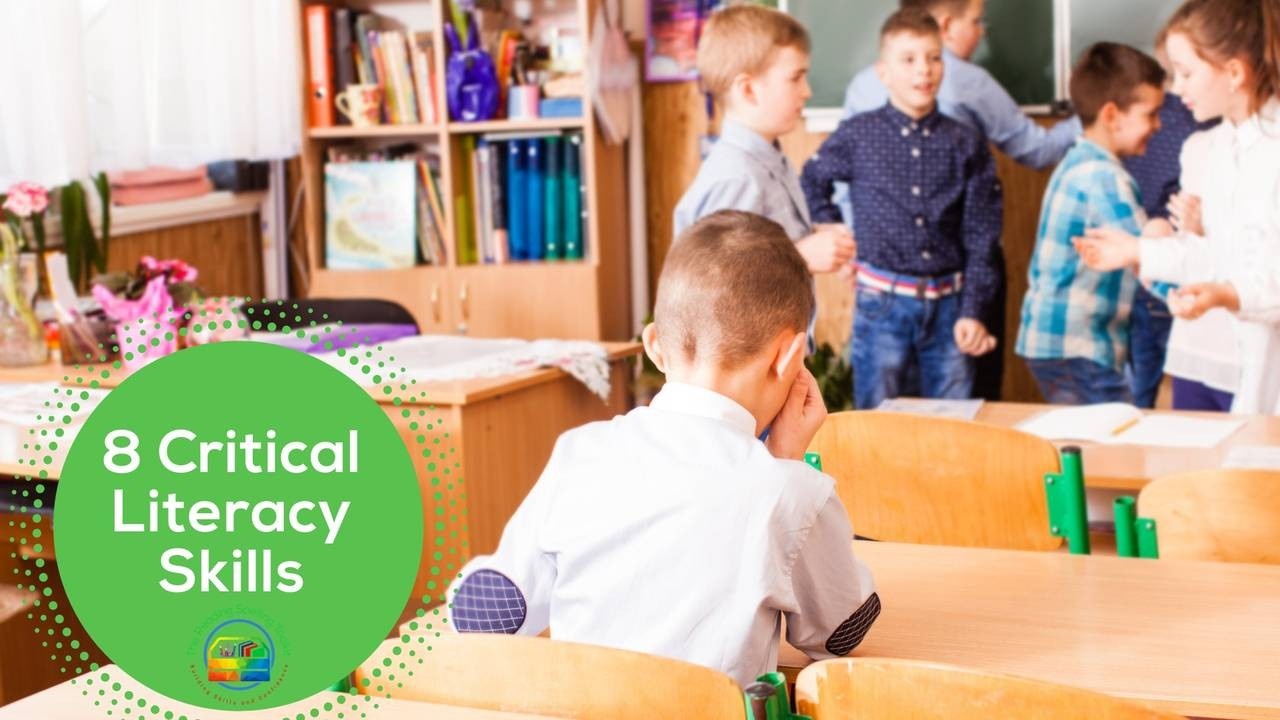
8 Critical Literacy Skills Your Child Needs
Mar 13, 2022DON’T WAIT FOR THEM TO FALL BEHIND
I received an email the other day from a mother who was notably distressed as she’d received an email from her son’s teacher saying his literacy skills were ‘below average.’ This poor mum had no idea her son was struggling at school and she felt as though she'd 'failed' as a parent for not realising sooner. In her email, she asked, “How was I meant to know that my son was struggling?” and "Should I have done something sooner?"
What this beautiful mother doesn’t realise is that as a specialist literacy teacher with 30 years’ experience, I receive hundreds of emails from worried and fearful parents with the same concerns about their child’s literacy skills. To ease these fears and frustrations being felt by so many families, I want to share with you the 8 critical skills your child needs to succeed in reading and spelling. Should your child be missing any of these tools, intervention may be appropriate to ensure they don’t fall behind or lose their self-esteem.
The Skills
1. Phonological Awareness Skills
Your child needs to be able to hear sounds in words and work with these sounds. Examples of these skills include:
- Counting the number of words they hear in a spoken sentence
- Clapping syllables/beats they hear in a spoken word
- Saying words that rhyme
- Listening to words and picking the word that doesn’t rhyme
- Blending syllables to make a word
- e.g. Say fan/tas/tic in three parts and having your child say the word back blended together
- Deleting syllables from a spoken word
- Say ‘handshake’ and having your child say handshake without the "shake"
- Listening and identifying the first or last sound in a spoken word
- Blending separate spoken sounds together
- Saying the sounds /z/ /i/ /p/ separately and having your child say ‘zip’ blended together
- Breaking words into separate sounds
- Adding, deleting or substituting sounds in words
2. Phonic Skills
Your child needs to be able to understand the relationship between letters and sounds.
To have good phonic skills, your child must be able to:
- Say the name of a letter/s/ and match these to a sound.
- Match spoken sounds to letter/s/.
3. Decoding Skills
Decoding means reading. Children with good decoding skills can read letters and identify the sound the letter/s/ makes. Understanding letter/sound relationships ensures children can recognise words quickly and helps children to sound out words they don’t know.
4. Encoding Skills
It is important that your child can hear individual sounds in words and select the right letter/s/ to represent these sounds (spelling).
5. Sight Words
It is important that your child can recognise words by sight, as this is an essential skill for reading, comprehension and spelling. Building phonological awareness and phonic skills are paramount prior to conquering sight words.
6. Fluency
Your child needs to be able to read fluently and accurately with minimal effort or fatigue. To read fluently, phonological awareness, phonics and decoding skills need to be established and sight words need to be continually strengthened.
7. Vocabulary
Your child needs to understand the meaning of words. The more words they know and understand, the easier it is to comprehend and communicate.
It is important that your child is able to:
- Understand what they have read.
- Read books that are age-appropriate to develop their vocabulary.
8. Comprehension
This is the whole purpose of reading – to gain an understanding of what is read. It is important your child is able to read a story and summarise what they have read.
Whenever I get an email such as the one I mentioned, my response is always the same.
"Does your child have these 8 critical skills for literacy success?"
If any of these skills are missing, your child may be at risk of falling behind in reading and spelling. If you are concerned your child may not have some of these skills in their toolkit, it may be beneficial to download our free literacy assessment, created by myself and a speech pathologist, to determine exactly where your child is struggling and how the unique and clinically proven tools in The Reading Spelling Toolkit may benefit your child.
